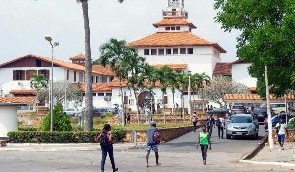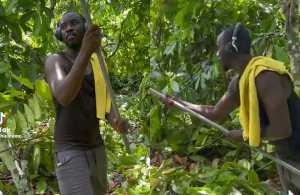Many developing countries have realised their heavy dependence on land resources and are, in consequence, critically examining their established customs, institutions and practices relating to land, in response to a number of internal and external factors, including the need to incorporate traditional agricultural systems into a commercial economy as well as the demands of aid donor countries in Western Europe and the US and of international lending institutions like the World Bank and IMF. Regarding external pressure, it is noted that in the period before 1975, the World Bank, in particular, did not take any interest in any programme of land reform but since 1975, the Bank has held the view that land reform is consistent with or necessary to the development objectives of increasing output, improving income distribution and expanding employment and that (it) should support reforms that are consistent with these goals.
Although Sub-Saharan Africa was not on the agenda of land reform in the first decades following the World War II, on account of its abundant land endowment and flexibility of its land tenure institutions, in the 1980s, the World Bank’s interest in land tenure issues in Sub-Saharan Africa increased. The most important feature of the policy pursued by the Bank is the new phenomenon of including land policy aspects in structural adjustments lending. This first started with Argentina and later was extended to Sub-Saharan countries.
For many developing countries, insecurity and inability to capitalise upon land and property severely constrains economic and social development at all levels of society. De Soto estimated in the Philippines and Egypt that there was in excess of $US 133 billion and 240 billion dollars respectively, of so-called dead capital tied up and not capable of being used to enhance the economic development of the countries. These assets comprise mainly houses and commercial enterprises built on land for which security of title or occupancy is not secure.
In Ghana, there may be as much as $US 8-10 billion of dead capital, in the form of land and housing and property assets. Most of this cannot be used as collateral to provide working capital for productive investments because of insecure tenure and the lack of micro credit to fund land and property development. The inability to use land and property as collateral is significantly undermining the economic development potential, investment and wealth creation capacity of the nation.
In developed countries, more than 60 percent of homes are mortgaged or used as collateral for other investment loans. The ability to use land and property as collateral to raise capital therefore has a significant influence on the productivity and performance of investments and the generation of personal and national wealth. Stable land markets, property finance, regulated and well managed land use and land conversion processes are essential to supporting investment and the accumulation of wealth. Most land markets in developed economies are guided by rules and regulations backed by statutes which ensure that transactions related to land are transparent and market values used for the purposes of land taxes and other charges are based on an agreed or fair assessment of the value of assets.
In Ghana Land markets are not transparent, the value of property and land is indeterminate, regulations related to land use are weak and not enforced and corruption is serious a problem. Property markets finance is weak. Less than 8 percent of titles had mortgages registered in Accra since 1988. In rural areas it is said to be less 1 percent, although unsecured borrowing through pledging against land is higher. No valuation has been made of state-owned assets. Many public assets, especially land, are grossly under-utilised and undercapitalised. Capitalisation and disposal of surplus and non-performing State land and property assets could raise substantial capital to support the development of land and housing in Ghana. In the rural sector, the fragmentation of land use, perceived insecurity of tenure, land degradation, lack of capital are factors compounding the problem of rural poverty. Many of these issues relating to poverty and land have been extensively documented in a wide range of studies and reports (National Poverty Alleviation Strategy Draft 2000; Ghana Statistical Service 2000b; Ghana Statistical Service 2000a). The rural land sector is grossly undercapitalised, and usufruct and sharecrop farming practices are not conducive to encouraging long-term capital investment in land. Often security of tenure to land under these forms of tenure is weak, leaving many farmers little choice but to adopt unsustainable farming practices. Subsequently, forced migration, landlessness and rural poverty continue to grow.
In advanced market economies, land is valued differently to customary societies. Land is foremost an economic resource, but it does have many other recognised values. Land and built assets can be traded freely, without encumbrance, at the highest value according to planning use rights and controls. Individuals, governments and business use land as a means of generating wealth and as a protection against inflation. It can be repossessed in the case of mortgage foreclosure.
In Ghana, there are two markets operating; one based on land as a tradable asset, the other based on customary values and a spiritual affinity attached to land. Land and property can be inherited and transferred, but this practice is less common to strangers. Land is an economic and productive asset, which can be realised by leasing and sub-leasing. However, seldom is land leased at its true economic or productive value. The inability to trade or borrow against customary land tenure because of insecurity does significantly undermine its economic and market value. It is the tradability of land that affects the dynamics of land markets. While urban land offers the opportunity for capital accumulation, capital gains are seldom realised because of the culture of holding and bequeathing rather than selling it. The situation arises where many urban land and house owners are asset rich and cash poor. Many homeowners in central Accra and Kumasi live in poverty, but are unwilling or unable to realise the value of their home or use it asset value to improve their personal well being. Hence, the situation exists in Ghana where there is a very large accumulation of assets of dead capital. Until cultural traditions and values change, so that trading of land and property in Ghana for capital and economic gain becomes wider spread, the potential to use more effectively the vast accumulation of land and property in the country will go unrealised.
Callistus Mahama
Department of Land Economy
University of Cambridge
Cambridge, England, CB2 1TJ

Views expressed by the author(s) do not necessarily reflect those of GhanaHomePage.














